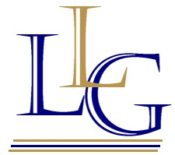Tax Exempt Organizations
Not-for-profit organizations, sometimes referred to as "charities", serve important roles in our communities. A lot of planning and paperwork is necessary for legal recognition as a charitable organization. These organizations must abide by strict rules under federal and state law in order to qualify for their tax-exempt status.
Attorney Tim Leighton can help you reduce your organization’s risks and lift the burden of handling these tasks alone. Tim has helped over sixty organizations achieve and maintain charitable status with the IRS and State authorities. Click here for more information on starting a tax-exempt organization.
We can help you meet these ongoing obligations. We also can assist your organization in handling the many challenges it may face, including contracts, records retention, and risk management. Even organizations that have been around for a number of years can benefit from a comprehensive legal audit.
In addition to creating and maintaining a not-for-profit organization, Clients may better achieve tax-exempt objectives through the use of charitable or philanthropic trusts or estate planning. We help you define your goals and determine which route to take to accomplish them and to benefit your organization. You can find more information about charitable and planned giving in the section below.
Planned Giving
Planned giving is a way for donors to support tax-exempt organizations and charities, often through financial gifts. While donors typically set up these gifts during their lifetimes, the benefits are often paid out to the recipients after the donor’s passing. You may have financial vehicles that you no longer need for the original purpose, such as life insurance and annuities after dependents have matured.
There are numerous tax benefits for both the donor and the charity as a result of making donations. For example, donors receive charitable deductions for a substantial portion of the market value of the gift. The donor typically pays little to no capital gains tax on the gift, and the charity benefits from the current market value of the gift.
Planned gifts allow donors to share their wealth with those in need and organizations whose missions they support. Attorney Tim Leighton would be glad to guide you through the process. To learn more, please give us a call at (309) 828-7600 to set up a courtesy initial consultation.

